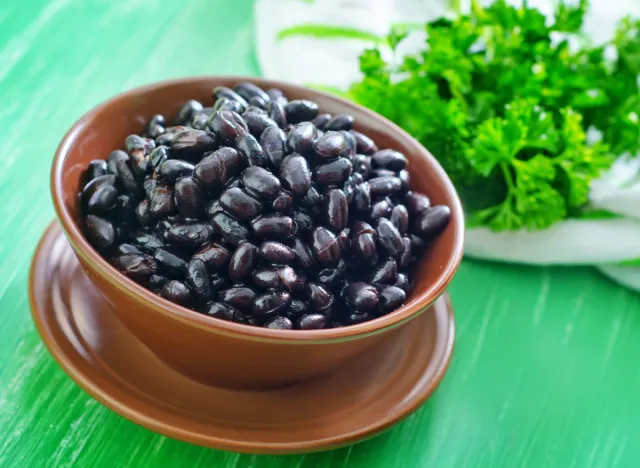Should You Lift Heavier With Fewer Reps or Lighter With More To Build Lean Muscle?

Sculpting lean muscle is a priority of many fitness enthusiasts. To make sure you’re spending your time most efficiently, we turned to the experts to learn what’s more effective: Lifting heavier weights with fewer reps or choosing lighter weights with more reps?
Lifting Heavier With Fewer Reps vs. Lighter With More Reps

The short answer is it really depends on your particular situation and goals. For instance, if you want to sculpt lean muscle and avoid looking too “bulky,” muscle endurance training is a stellar plan.
In this situation, Jill Drummond, a NASM and ACE certified personal fitness trainer and BODYBAR Pilates‘ VP of Fitness, recommends, “Focus on moderate weight loads and longer sets, but remember some stress is required so don’t go too light! You should feel resistance and challenge while still being able to complete all your reps and sets.”
Now, if you are looking to bulk up, Jill suggests, “Lift heavy-set weights for lower repetitions and eat in a caloric surplus. If that’s not part of your routine, you most likely will not have to worry.”
Dotsie Bausch, an Olympic silver medalist and track cyclist, and she wanted to achieve maximum strength gains so she could pack on more muscle mass in her hamstrings and glutes for the load of her standing start on the track.
“That meant lifting 565 pounds on the inverted leg sled, at 60 reps x 6 sets. So, you can see with that, I used very heavy weights and very high reps, but it took years to build into being able to do that safely,” Dotsie explains.
Consuming a Nutrient-Dense, Protein-Filled Diet Is Key, Too

In addition to your lifting regimen, consuming a nutritious, protein-packed diet is essential for building lean muscle.
“The key is choosing nutrient-dense, protein-rich foods that also offer a host of anti-inflammatory compounds to support your recovery,” Dotsie tells us.
She’s a big fan of legumes, such as chickpeas, black beans, and lentils, as they’re packed with protein and complex carbs—both of which fuel your muscles and replenish glycogen stores after your workout.
“I also enjoy high-protein plant-based food sources like tofu, tempeh, and edamame, which are standout options offering essential amino acids needed for muscle repair,” Dotsie adds. “Easily digestible foods like tofu and tempeh (that also lend themselves towards a healthier gut microbiome) are important because your body has the opportunity to spend more energy on building muscle and less energy on digestion!”